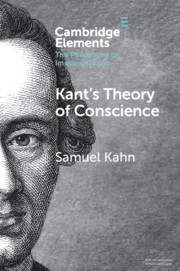The received view is that Kant denies all moral luck. But I show how Kant affirms constitutive moral luck in passages concerning radical evil from Religion within the Boundaries of Mere Reason. First, I explicate Kant’s claims about radical evil. It is a morally evil disposition that all human beings have necessarily, at least for the first part of their lives, and for which they are blameworthy. Second, since these properties about radical evil appear to contradict Kant’s even more famous claims about imputation, ‘ought implies can’, and free will, I unpack Henry Allison’s proof of radical evil and show how it is consistent with interpretations of Kant’s broader views about morality. Third, I define and illustrate the category of constitutive moral luck and argue that Kant embraces the existence of constitutive moral luck given Allison-style interpretations of radical evil. This provides a reason for philosophers to reject the received view, and it creates an occasion for Kantians and Kant scholars to check their reasons if they deny moral luck.
